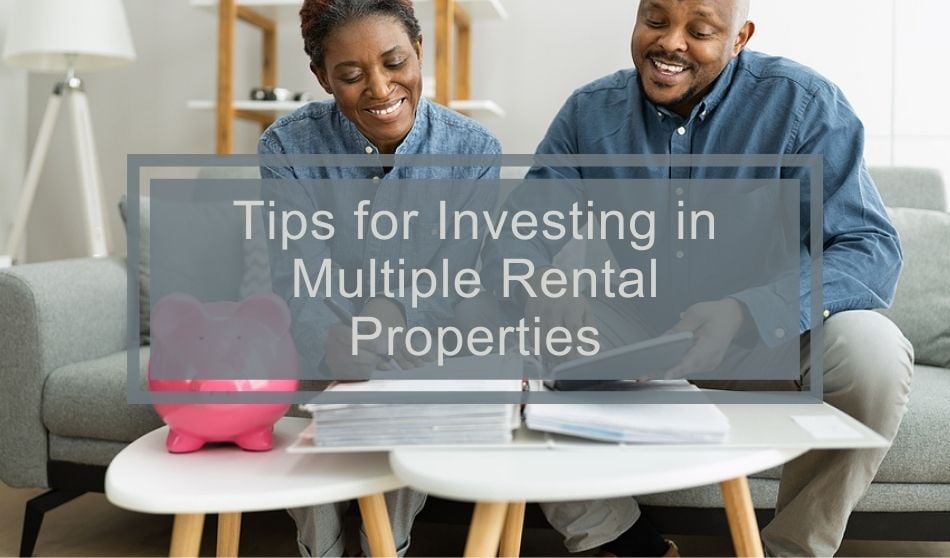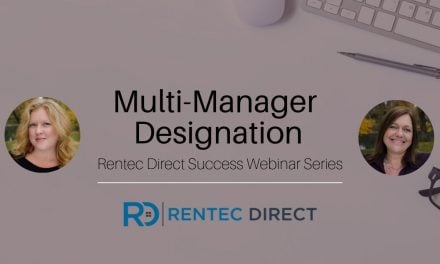As a real estate investor, you’ve hopefully had some solid success managing your first investment property, and you might be wondering if it’s time to purchase a second property to expand your portfolio. And why not? Investing your profits in new properties is a great way to grow your business and move closer to your financial goals.
Adding a second investment property (or several more) brings with it new challenges and new questions to consider.
Pros and Cons of Investing in Multiple Rental Properties
On the positive side, a portfolio of multiple rental properties equates to more income, provided a thorough rental property analysis, conducted before you consider purchasing anything, has yielded positive results.
In addition, once you’ve established a positive cash flow on your first investment property, there are often more opportunities available to you to finance a second investment property, such as a second mortgage or a 1031 exchange.
One more added appeal to owning multiple investment properties is diversifying risk by diversifying your portfolio. You might consider investing in a mix of different property types such as multi-family homes, condos, or apartment buildings, for example, or in different sizes in terms of square footage, bedrooms or bathrooms. You’ll be better positioned to ride out a market downturn with a diversified portfolio or properties.
Managing multiple investment properties is not without its drawbacks either, and you’ll want to consider whether you’re ready to take on the additional challenges.
For one, owning more properties requires a larger outlay of capital. Do you have enough savings and income to handle multiple mortgages, property taxes, and possibly a property management fee? Will you be able to cover emergencies and repairs?
Learn more: All You Need To Know About Property Management Fees
Another drawback for some is the increased amount of work managing multiple properties entails. Even if you employ help from a property management service to take care of the day-to-day, you’re still responsible for the overall financial health of your investments and ultimately, as a landlord, the happiness of your tenants.
Real estate is often about timing, and judging whether it’s a good time to add a second property to your portfolio can feel tricky: You want to build on your success but don’t want to make a bad decision that could jeopardize your hard work.
Here are a few questions to consider while weighing your options:
- Do you have the experience?
- How long have you successfully managed your first investment property?
- Do you have positive cash flow and happy tenants?
- Do you have the time and skills to manage multiple properties?
- Will you outsource help such as a property management service?
- Are you financially prepared to handle multiple mortgages, property taxes, maintenance and emergencies?
- Do you understand the tax benefits and liabilities?
- Is the timing right?
- What are current interest rates?
- Have you done a market analysis to find out what homes are selling or renting for in the area you’re interested in?
The process of buying a second investment property will likely feel familiar, with a few differences and decisions to make.
Tips to Keep in Mind When Buying A Second Rental Property
Do Your Homework
You need to know how to research and identify the best rental markets with a rental property analysis, keeping key factors such as location, vacancies and listings, the local economy, and growth and development in mind.
Evaluate the number of recent sales and listing prices, median household incomes, employment trends, and affordability in the area you’re considering. Are you buying at the right time in the property cycle or have an opportunity to buy under market value? You want to make sure you’re making the best investment you can in the right area to ensure your rental property is profitable.
Assemble a Great Team
Work with a great real estate agent who specializes in the area you’re interested in. They’ll be able to open doors and offer insights into the area you can’t get from reading a research report. Free agent matching services are often a good way to find a knowledgeable realtor with a minimum outlay of time, and some services offer built-in savings with no negotiating.
It’s also good to have a solid relationship with a great mortgage broker, who can help you maximize your borrowing power and get approved for better loans.
A tax attorney or accountant is another vital member of your team to advise you on the tax implications or other tax deductions of multiple investment properties.
Learn more: Tax Tips for Rental Properties – Rental Income and Deductions for Landlords
Know your Financing Options
You have several options when it comes to financing a second investment property, but it may take some due diligence to understand them thoroughly to determine which is right for you at this stage of your investing life.
Conventional loans that follow Fannie Mae and Freddie Mac guidelines might be the easiest to obtain at the best rates. A second mortgage may be a viable means of financing a second rental property. A blanket loan, which is one mortgage that covers all your properties, may be appropriate, the advantage being one set of closing costs applies if all the properties are purchased at the same time, though higher fees and rates may apply. FHA 203K loans apply to fixer-upper properties that need extensive repair, but hard money loans might be used as a fast financing alternative to a 203K with higher rates and fees until a more permanent loan can be secured. Be sure to work with a knowledgeable broker who can guide you through your options.
The transition from owning one rental property to adding a second is a major milestone in scaling your investment business. Successfully navigating the challenge of researching, financing, and managing a second property may lead to further expansion down the road.






